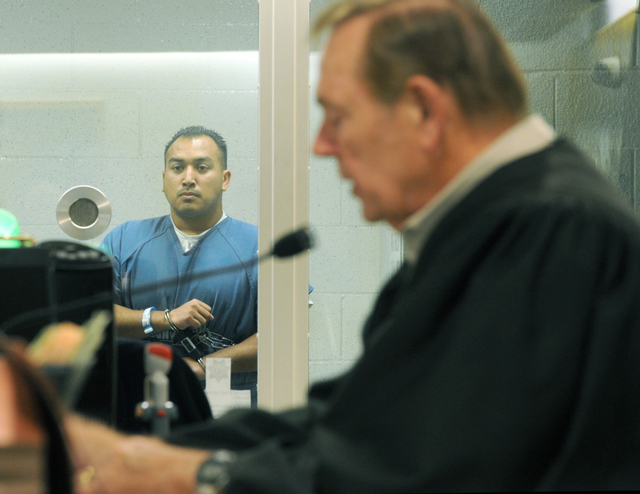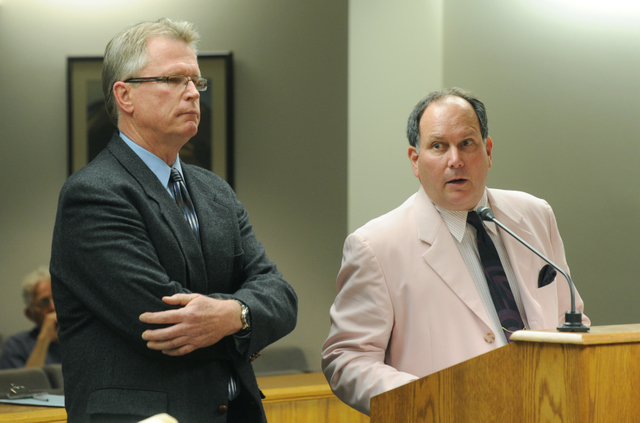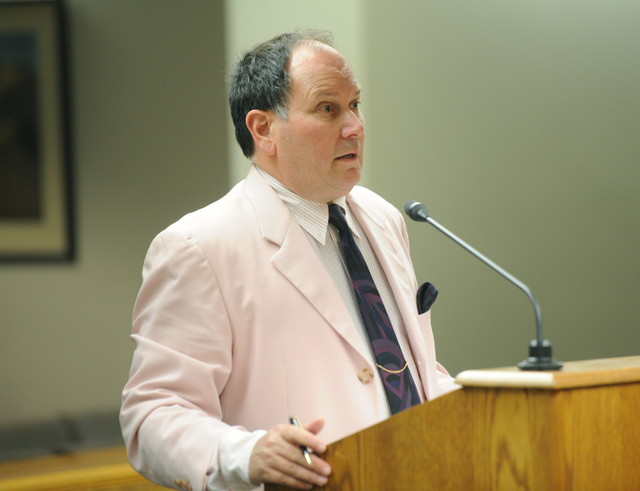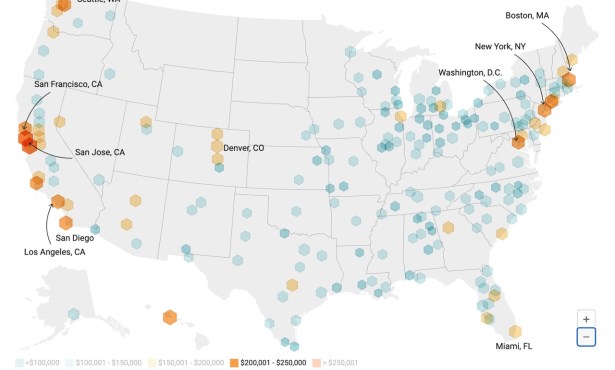Judge to Examine Morua’s Past DUI Program Records
Victim’s Family and Friends Square Off with Defense Attorney

A Santa Barbara judge will soon decide whether to allow past DUI program records belonging to Raymond Morua in the prosecution of his current case for fatally hitting 27-year-old Mallory Dies in a DUI hit-and-run collision last December. Morua, 32, is charged with second-degree murder, gross vehicular manslaughter while intoxicated, and leaving the scene of an accident that resulted in death. If convicted, he faces 15 years to life in prison.
After six delayed hearings and two lawyer changes, Morua has not yet entered a plea, and the case has not moved beyond the arraignment phase. Morua’s scheduled arraignment this Thursday was postponed again, but the hearing afforded an opportunity for some of Dies’s family and friends to interact with Morua’s defense attorney, Darryl Genis, for the first time. The exchanges varied between confrontational and cordial.
During Thursday’s hearing, Senior Deputy District Attorney Arnis Tolks reminded Judge Thomas Adams that Morua — a U.S. Army veteran who reportedly suffers from PTSD and has openly admitted to past troubles with alcohol — had been convicted of DUI twice before. Both incidents occurred in Ventura County in 2006, and he was ordered by the court in each instance to attend DUI education programs. Tolks has asked that Morua’s program attendance records and testing results, as well as accounts of the admonishments and instruction he received, be made available to his office. While he is typically able to obtain such records in Santa Barbara with a subpoena to Zona Seca, Tolks explained to Judge Adams, the Ventura County Behavioral Health Department where Morua took his classes is guided by different disclosure laws and requires a court order.

The information, Tolks argued, is relevant to proving the charges because it speaks to the “implied malice and gross negligence” Morua displayed the night Dies was killed. In other words, Tolks is seeking to show that Morua was well aware of the danger he posed to the public when he chose to drive drunk and that he had no regard for human life at the time. After Morua hit Dies, he reportedly backed up and drove around her body, refused to return to the scene after being confronted by witnesses, and then crashed into a nearby tree. His blood-alcohol level measured 0.17, police said, more than twice the legal limit. Morua, then working as a district representative for Congresswoman Lois Capps, was fired two days later. Capps’s office has denied Morua was representing Capps in an official capacity that night.
Genis argued against the records disclosure on Thursday, claiming the files are protected by federal HIPAA laws that govern the release of confidential medical records. Alcoholism is a documented medical disease, Genis said, and records of its treatment fall under HIPAA restrictions. Genis said he understood why Tolks was asking for the information, but complained Tolks’s request was “overbroad” and said that the prosecutor is not entitled to go on a “fishing expedition.” Tolks countered he was very specific in his request and called Genis’s arguments “specious at best.”
Adams struck a compromise with his ruling, but first noted: “I have to wonder aloud whether defense has blurred the line between medical records and program records.” Explaining he’s unaware of any case law that suggests DUI program records should be treated the same as doctor or hospital records, Adams said he will order the program files but read them first to determine if they are appropriate for Tolks to use. In light of the ruling, Genis said he was unprepared to enter a plea on behalf of his client. He asked the hearing be rescheduled, and it was for February 27.
After the hearing, Genis said that while he doesn’t think Tolks “made an adequate showing to gain access to the records,” he respects the court’s ruling. “Judge Adams is a thoughtful jurist, one of our most intelligent and thoughtful jurists, and I know he will carefully review the records with an eye to following the letter of the Federal HIPAA law,” Genis said by email. When asked if he had used the HIPAA argument in prior cases to block access to program records, and whether it had worked, Genis wrote, “I have advanced violations of HIPAA in the context of Fourth Amendment context, but this is the first time I have had to address the issue in this context.”
During Morua’s last court appearance, Genis announced that his client wants to take responsibility for Dies’s death, though he said he’s pushing for the lesser charges of vehicular manslaughter and DUI causing death. This week, Genis suggested that one way for Morua to take responsibility is to appear in a MADD-sponsored anti-drinking-and-driving commercial. “However, it would only be possible to do that after the prosecution has concluded,” Genis said, “otherwise the prosecution would be free to use it against him.” When asked how Morua has faired behind bars over the last two months, Genis said that “Raymond is using his time well, helping to organize more AA meetings and working with incarcerated veterans who also suffer from PTSD.”
Genis took over Morua’s case last month from private defense attorney Sam Eaton, who had replaced public defender Deedra Edgar. The reasons behind the switches are unclear. Last week, a judge of the California State Bar Court recommended that Genis be suspended for 90 days for acts of wrongdoing, bad faith, and misconduct carried out during his work on unrelated DUI cases. The judge also recommended that Genis’s professional license be placed on probation for two years and that he attend anger-management counseling. Genis said he vows to fight the decision through the appeals process. In the meantime, he continues to practice law.
Right before Thursday’s proceedings got underway, one of Dies’s supporters — surrounded by a dozen or so other friends and family members, many of them wearing matching T-shirts with the message “I honor Mallory’s legacy by vowing to never drink and drive” stenciled on the back — stood up from his seat in the audience and approached Genis. He handed Genis a Dies support sticker and asked him to wear it. “I want you to wear it proudly,” the friend said loudly, repeating himself before sitting back down. Genis, visibly taken aback, approached the group and explained he’s long advocated that people self-impose a “12 hours from bottle to throttle” rule. He said he understood the group’s position before depositing the sticker in his briefcase.

After the hearing, Genis approached a different Dies supporter and assured him they were “all on the same page.” Genis said he and Morua understand there is nothing they can do to “reanimate” Mallory, and there is no legal recourse that can repair the pain that’s been caused. But, he said, “there have been two hit-and-runs”: one committed by Morua and one by Capps for denying that Morua was working for her on the night of the incident. At this point, a close friend of the Dies family began calmly and pointedly asking Genis a number of questions about his profession and some of the ethical issues he faces while defending clients like Morua. Dies’s father stood silently by and listened for a few minutes before shaking his head and walking away. In an email to The Independent on Friday, Genis offered to reiterate some of the answers he gave during the private conservation.
The family friend asked Genis if society might be better served if DUI defense attorneys also worked to prevent or curb drinking and drinking accidents rather than just profiting from their aftermaths. “I told him that I counsel all my clients on why they should accept a ‘12 hours from bottle to throttle’ rule in order to avoid the need to hire me again, and in order to insure that they will not have to be responsible for injuring or killing anyone in the future,” Genis explained. “I told him my practice is almost entirely comprised of first offenders, almost all of whom do not become repeat offender clients, and that I handle very few DUI accident/injury/death cases, and I do not solicit such cases, but I don’t shy away from them.”
The friend, referring to Morua’s past DUIs, then suggested that Genis and his colleagues are responsible for enabling DUI defendants to re-offend by working to have their cases dismissed and licenses returned. Everyone has to put food on the table, the friend admitted, but doesn’t that seem inherently wrong? “We had an extensive conversation, and I explained that my job is not to ‘get someone off’; it is to enforce the constitution and the laws of our state in order to insure they are afforded due process, equal protection, and the right to effective counsel,” Genis said. “In short, I am a constitutional defense attorney, not a criminal defense attorney.”
The conversation then shifted to Genis’s advertisements. The family friend said their wordings seem to encourage diminished responsibility for a DUI suspect and suggest that even if they do drink and drive, Genis will get them out of trouble. “I am not the guarantor of the social responsibility of others,” Genis said he answered. “All I can do is sweep my side of the street.” Lastly, the friend again pressed Genis if he experiences ethical dilemmas over what he does for a living. “I told him the truth; I don’t feel any conflict,” Genis said in his email. “John Adams defended the British soldiers who killed friends, neighbors, and relatives, and he is one of America’s heroes. He set a good example of what a constitutional defense attorney should be willing to do.”


